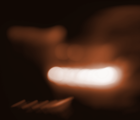List an Event in the Calendar
For physical events that happen at a specific time. For example a concert, or dance performance. If there are multiple shows, you can still duplicate your event to cover them all.
For online / livestream events. This will allow you to include a livestream url and have it featured in our livestream listings.



